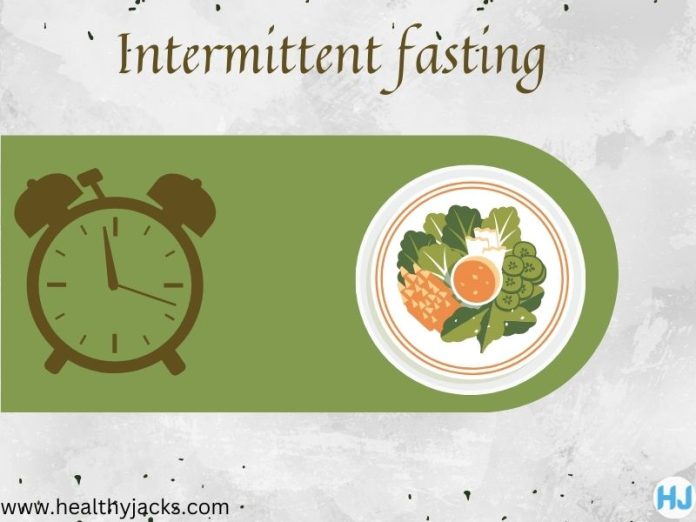Understanding Intermittent Fasting: The Basics
Intermittent fasting is more than just a diet; it’s an eating pattern that dictates when you eat rather than what you eat. Essentially, it involves alternating periods of eating with periods of fasting. This can vary from shorter fasting windows of a few hours to longer periods spanning several days. However, the most common approaches often involve daily fasting periods lasting anywhere from 12 to 20 hours.
Different Approaches to Intermittent Fasting
When it comes to intermittent fasting, there’s no one-size-fits-all approach. Various methods exist, each with its own unique fasting and eating windows. One popular method is the 16/8 method, where you fast for 16 hours and confine your eating window to 8 hours daily. Another approach is the 5:2 diet, where you eat normally for five days of the week and significantly reduce calorie intake (usually to around 500-600 calories) for the remaining two days.
Interesting Facts : Studies discovered that intermittent fasting boosts working memory in animals and verbal memory in adult humans. Heart health. Intermittent fasting improved blood pressure and resting heart rates as well as other heart-related measurements.
Intermittent Fasting Schedules
Aside from the 16/8 method and the 5:2 diet, there are other intermittent fasting schedules worth considering. Some people prefer the Eat-Stop-Eat method, where you fast for a full 24 hours once or twice a week. Alternatively, the Warrior Diet involves fasting for 20 hours each day and consuming all your calories within a 4-hour eating window in the evening.
Read more : Portfolio Diet: How Can It Lower Cholesterol?
How Intermittent Fasting Works: The Mechanism
The appeal of intermittent fasting lies in its ability to tap into our body’s natural metabolic processes. During fasting periods, insulin levels drop, prompting the body to utilize stored fat for energy instead of glucose from food. This can lead to gradual weight loss over time, making intermittent fasting an attractive option for individuals aiming to shed excess pounds.
Exploring the Benefits of Intermittent Fasting
Beyond weight loss, intermittent fasting offers a range of health benefits. Research indicates that it may improve insulin sensitivity, reduce inflammation, facilitate cellular repair processes, and even enhance brain function. Some studies have also suggested that intermittent fasting could lower the risk of chronic diseases such as heart disease, diabetes, and cancer.
Downsides of Intermittent Fasting
While intermittent fasting can be beneficial for many individuals, it’s important to acknowledge its downsides as well. Some people may experience side effects such as hunger, fatigue, irritability, and difficulty concentrating, especially during the initial stages of fasting. Additionally, for some individuals, intermittent fasting may not be sustainable or suitable for their lifestyle.
Read more : Unlocking the Benefits of a Kidney Stone Diet Chart: Tips and Insights
The Simplicity of Intermittent Fasting: Ease of Adoption
What sets intermittent fasting apart from traditional diets is its simplicity. Unlike restrictive eating plans that require meticulous calorie counting or food elimination, intermittent fasting can be relatively straightforward to incorporate into your lifestyle. It doesn’t necessitate special foods or supplements, and it can be adapted to suit your schedule and preferences.
Considerations and Challenges of Intermittent Fasting
While intermittent fasting may offer numerous benefits, it’s not suitable for everyone. Pregnant or breastfeeding women, individuals with a history of eating disorders, and those with certain medical conditions should consult a healthcare professional before embarking on intermittent fasting. Additionally, some individuals may experience challenges such as hunger, fatigue, or irritability, especially during the initial adjustment period.
Conclusion
Simple yet effective approach to improving health and promoting weight loss. By incorporating periods of fasting into your eating routine, you can tap into your body’s natural metabolic processes and potentially reap a host of benefits beyond just shedding pounds. While intermittent fasting may not be suitable for everyone, many find it to be a sustainable and adaptable method for achieving their health and wellness goals. Why not give it a try and see how intermittent fasting can work for you?
Similar FAQ
Does intermittent fasting work for losing weight?
intermittent fasting was effective for weight loss, with a typical loss of 7-11 pounds over 10 weeks.
Can I drink milk during intermittent fasting?
it is advisable to avoid adding anything to the drink, such as sugar, cream, or milk.
Can we eat fruits in intermittent fasting?
fruits are essential in intermittent fasting.
Should you intermittent fast every day?
Fasting on either a daily or weekly basis helps your body burn fat.
How much weight can you lose in a month with intermittent fasting?
6-8 pounds per month

